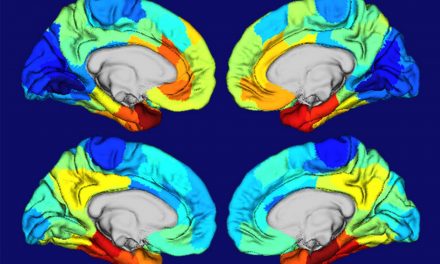
Study diagnoses 5,500 people with rare genetic diseases
Around 5,500 people with severe developmental disorders now know the genetic cause of their condition, thanks to a major nationwide study
More than 13,500 families from 24 regional genetics services across the UK and Ireland were recruited to the Deciphering Developmental Disorders (DDD) study, a collaboration between the NHS and the Wellcome Sanger Institute funded by Wellcome and the Department of Health and Social Care, and supported by the National Institute for Health and Care Research.
All the families had children with a severe developmental disorder, which was undiagnosed despite prior testing through their national health service and likely to be caused by a single genetic change.
The Wellcome Sanger Institute sequenced all the genes in the children’s and parents’ genomes to look for answers, a search which is still ongoing.
Combined with other high-tech methods, the team have so far been able to provide genetic diagnoses for around 5,500 children in the study. The diagnoses were in over 800 different genes, including 60 new conditions previously discovered by the study.
Around three-quarters of the conditions were caused by spontaneous mutations not inherited from either parent.
The research team also found that the chances of success in getting a diagnosis were lower in families of non-European ancestry, reinforcing the imperative to increase research participation for under-represented groups.
Lead author Caroline Wright, Professor of Genomic Medicine at the University of Exeter, said: “Getting the right diagnosis is absolutely critical for families with rare conditions, which collectively affect around 1 in 17 people. Most of these conditions are genetic and can be diagnosed using the same genomic sequencing technology.
“The families in our study were desperate for answers, which can make a huge difference to clinical management and quality of life. We worked with hundreds of clinicians and scientists, as well as thousands of patients to try to find those answers.
“By sharing our findings, many more families in the future should get answers faster.”
- Therapy for babies with signs of autism cuts long-term disability costs
- Rare gene variants could cause AMD
- Overall disease burden of genetic risk factors estimated for the first time
Rare genetic diseases
Senior co-author Matthew Hurles, incoming director of the Wellcome Sanger Institute and Honorary Professor of Human Genetics and Genomics at the University of Cambridge, said responsible data sharing was critical for making the diagnoses.
He stated:“Undiagnosed patients with rare genetic diseases have the most to lose if they are not given an opportunity to participate in research and if their data are kept in silos.
“Many of these diagnoses were only made possible through combining data across all diagnostic centres in the UK and Ireland.
“For some diagnoses, it was only through sharing data with international colleagues that it was possible to make a diagnosis.
“As these genomic technologies move into routine healthcare, ensuring that undiagnosed patients can still benefit from research on their data will remain incredibly important.”
Senior co-author Helen Firth, Professor of Clinical Genomics at the University of Cambridge and lead clinician for the study, emphasised the importance of the DECIPHER informatics platform for supporting recruitment of patients and return of diagnostic findings to clinical teams.
Firth, who is also a consultant in Clinical and Genomic Medicine at Cambridge University Hospitals NHS Foundation Trust, which sponsored the study, said:“Embedding a powerful informatics platform at the heart of this study facilitated the collaboration with families, clinicians and scientists engaged in the project, and played a crucial role in its diagnostic success and in the discovery and ultimately treatment of new causes of rare genomic disease.
“The Deciphering Developmental Disorders study has resulted in more than 290 publications and identified approximately 60 new disorders.”
Genetic diagnosis for babies
Senior co-author Michael Parker, Professor of Bioethics at the Ethox Centre at Oxford Population Health, University of Oxford, and ethics lead for the study, highlighted the key role played in the success of the Deciphering Developmental Disorders Study of an integrated programme of bioethics.
He said: “From the initial design of the study, through the building and sustaining of collaborative partnerships with clinicians, to the identification and addressing of practical ethical problems in real time throughout the life of the project, the embedding of ethics research and advice into the Deciphering Developmental Disorders project has been crucial to its success and to building and maintaining well-founded trust and confidence of clinicians and patients.”
A similar approach to diagnosing individuals with rare diseases is now being used in the NHS by the Genomic Medicine Service, the Scottish Genomics Laboratories Network Whole Exome Sequencing Service, and the Rapid Genome Sequencing Service for acutely unwell children with a likely monogenic disorder, which can provide a genetic diagnosis for babies and children in or facing critical care within just ten days.
The genetic conditions identified in the current study will feed into the tests applied by the services, to help diagnose more people swiftly.
Health Minister, Will Quince, said: “We’re creating the most advanced genomic healthcare system in the world and this study is yet another step forward to revolutionising care for NHS patients.
“Using cutting edge, high-tech methods such as this offers the potential to better understand and more accurately diagnose rare genetic conditions so children can access treatment faster and potentially limit the impact of the disease on their life.”
The research is published in the New England Journal of Medicine.
Image: Sofie Brogden with parents Dasha and Carl © Dasha Brogden.














